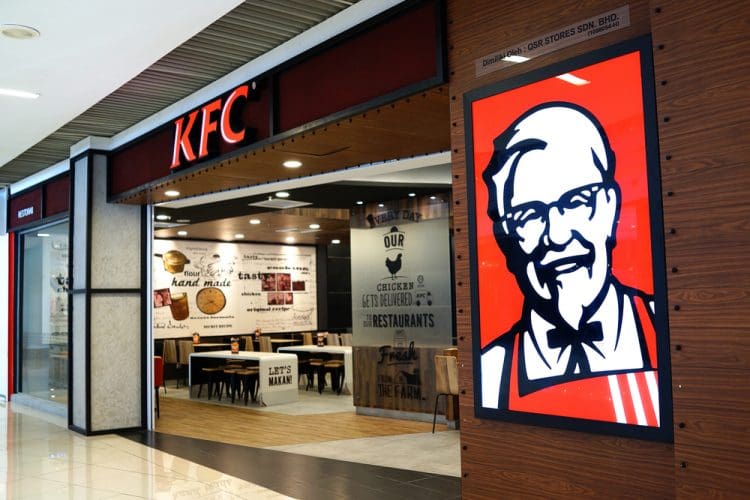KFC has closed more than half of its 900 UK outlets after delivery problems meant they ran out of chicken.
Last week, the fried chicken chain switched its delivery contract to DHL, which blamed “operational issues” for the supply disruption.
It was unclear when the delivery problems would be rectified, a KFC spokesperson said.
Workers are being encouraged to take holiday but would not be forced to do so, he added.
“Our teams are working flat out all hours to get the rest back up and running as soon as possible – but it’s too early to say how long it will take to clear the backlog.”
KFC has set up a web page where “fans” can find their nearest outlet that is still open.
It said that in the restaurants owned by the chain, staff on short-term contracts would be paid the average hours worked per day over the past 12 weeks, while those on salaries would be paid as normal.
However, 80% of KFC outlets are run on a franchise basis.
“Franchisees will be seeking their own independent advice, but we’re encouraging them to adopt this policy too,” said the chain.
Hundreds of KFCs like this one in Manchester are closed because they’ve got no chicken. So what’s gone wrong? Find out later on @bbc5live… pic.twitter.com/uXWxhzxERm
— Guy Kilty (@GuyKilty) February 19, 2018
Until last Tuesday, KFC’s chicken was delivered by South African-owned distribution group Bidvest, which describes itself as “the leading supplier of logistical and supply chain solutions to the UK hospitality and restaurant sector”.
But after the change in the contract, many of the food giant’s outlets began running out of chicken products.
‘Teething problems’
“The chicken crossed the road, just not to our restaurants,” KFC said on Twitter.
“We’ve brought a new delivery partner onboard, but they’ve had a couple of teething problems – getting fresh chicken out to 900 restaurants across the country is pretty complex!” it added, apologising to customers for the inconvenience.
“We won’t compromise on quality, so no deliveries has meant some of our restaurants are closed, and others are operating a limited menu or shortened hours.”
The statement listed KFC restaurants that were still open despite the problems.
The distribution network uses software developed by the firm Quick Service Logistics (QSL).
Dr Jonathan Owens, expert in operations management and the supply chain, at the University of Salford Business, school said: “Supply and demand is perhaps one of the most fundamental concepts of business economics and it really is the backbone of a market economy such as the UK’s.
“So what has gone wrong? It is not a regional problem, but nationwide as there are reports of outlets shutting up and down the UK. There are two key players involved in the supply of chicken to KFC. QSL, who are the relatively established partner and DHL who came onboard in November 2017 to manage the supply and distribution of food products. DHL are managing the physical warehouse and distribution service, therefore, in FMCG environment, this partnership in not really in its infancy.
“KFC chose the two companies for their reputation of “innovation in logistics.” So, what is so shocking is how quick the supply has gone and with little or no warning. Obviously there was demand there, because this is the result are seeing. However, supply represents how much the market can offer. This is the triangulation and communication between KFC, DHL, QSL and their first and second tier suppliers and so on.
Depending upon the size of the chain could have an impact on the communication levels to front of shop and in FMCG industries there is very limited room for error. A major UK supermarket had similar issue in the early noughties when they attempted to implement ‘LeAgile’. We may never know the true reason as to what happened, but, the impact has been instant and at the front-line.”


